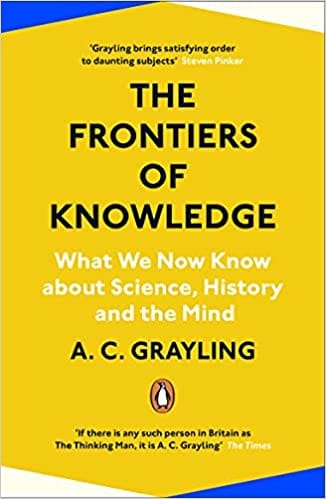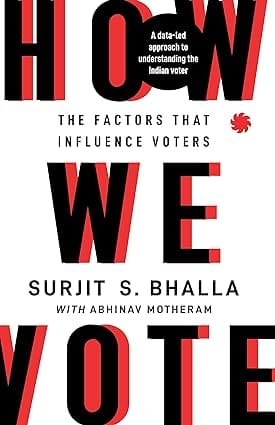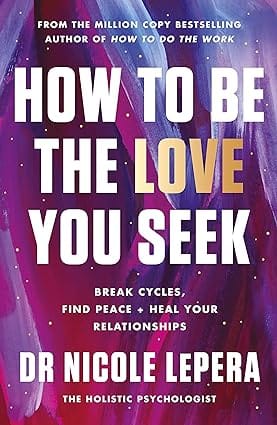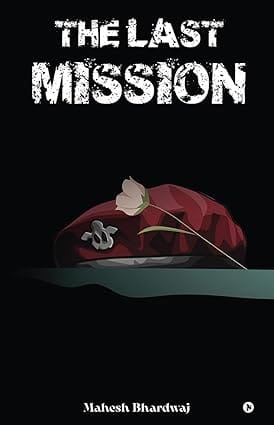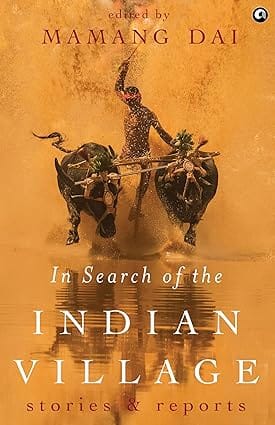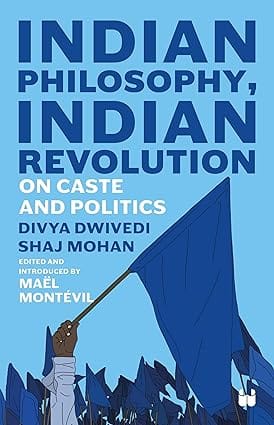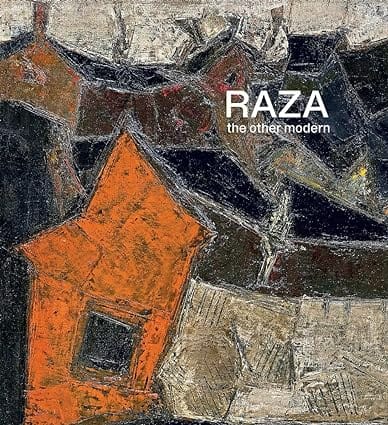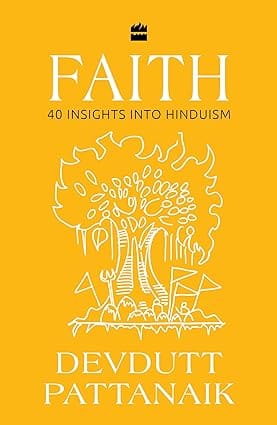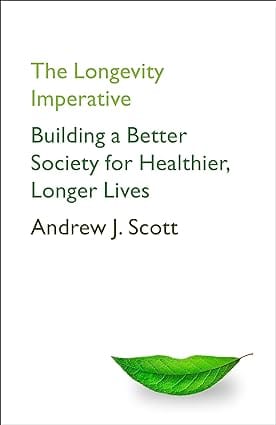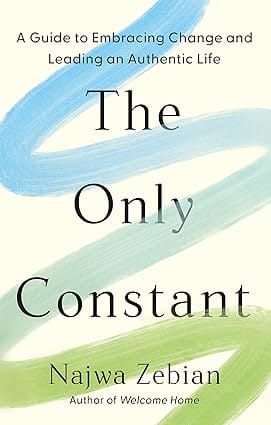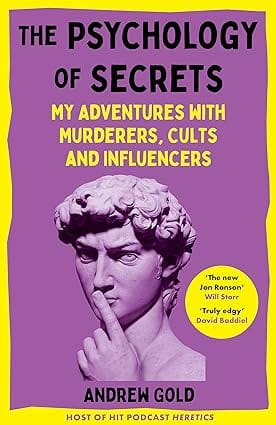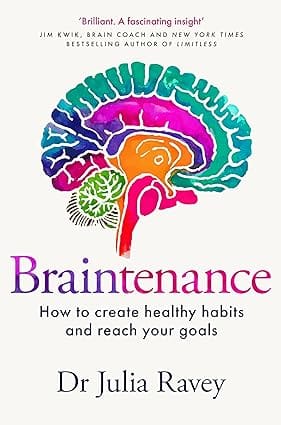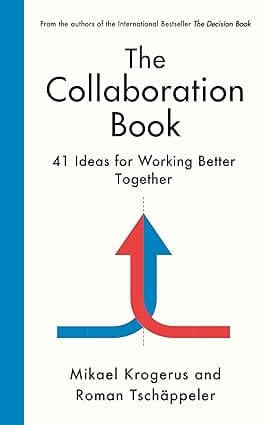- Contemporary Fiction
- Contemporary Fiction
- Children
- Children
- Comics & Graphic Novels
- Comics & Graphic Novels
- Non-Fiction
- Non-Fiction
- Fiction
- Fiction
'Grayling brings satisfying order to daunting subjects' Steven Pinker
_________________________
In very recent times humanity has learnt a vast amount about the universe, the past, and itself. But through our remarkable successes in acquiring knowledge we have learned how much we have yet to learn: the science we have, for example, addresses just 5 per cent of the universe; pre-history is still being revealed, with thousands of historical sites yet to be explored; and the new neurosciences of mind and brain are just beginning.
What do we know, and how do we know it? What do we now know that we don't know? And what have we learnt about the obstacles to knowing more? In a time of deepening battles over what knowledge and truth mean, these questions matter more than ever. Bestselling polymath and philosopher A. C. Grayling seeks to answer them in three crucial areas at the frontiers of knowledge: science, history and psychology. A remarkable history of science, life on earth, and the human mind itself, this is a compelling and fascinating tour de force, written with verve, clarity and remarkable breadth of knowledge.
_________________________
'Remarkable, readable and authoritative. How he has mastered so much, so thoroughly, is nothing short of amazing' Lawrence M. Krauss, author of A Universe from Nothing
'This book hums with the excitement of the great human project of discovery' Adam Zeman, author of Aphantasia
Review
Remarkable, readable and authoritative. How he has mastered so much, so thoroughly, is nothing short of amazing -- Lawrence M. Krauss, author of A Universe from Nothing
This book hums with the excitement of the great human project of discovery -- Adam Zeman, author of Aphantasia
Prof. Grayling interweaves the recent scientific and archaeological advances into a compelling narrative of how much progress humans have made in the understanding of their place in the natural, social and cognitive worlds. And how ignorant we still remain providing strong motivation to further this understanding by new empirical evidence -- Tejidner Virdee FRS
AC Grayling tackles the questions science can't answer... a breathtaking book... Scholarly, lucid and accessible without being patronising or diluting, Grayling offers a masterly exegesis of current knowledge in three disciplines, as well as an analysis of what both opens and obstructs our access to such knowledge - in effect, four books in one
-- Jane O'Grady - The TelegraphAn enthusiastic thinker who embraces humour, common sense and lucidity - Independent
About the Author
Excerpt. © Reprinted by permission. All rights reserved.
History tells us that these kinds of ‘knowledge what’ explanations consisted principally in what we now call ‘religious’ beliefs. These in turn contributed further kinds of supposed ‘knowledge how’ by suggesting forms of interaction with aspects of nature, or the agencies that control nature, hoping to influence or propitiate them through ritual, prayer, and sacrifice. It is an interesting speculation that, as liturgical (religious, ritualistic) means of influencing nature came to be displaced by more practical and mundane expertise, so the interest in effecting control transferred itself from nature to society; perhaps, as suggested by the concept of ‘taboo’, when controlling certain kinds of behaviour was no longer regarded as necessary for influencing nature or nature’s gods, the social control – in the form of conceptions of ‘morality’ – endured. Whether or not this is the case, the main point remains that until very recently in human history ‘knowledge how’ has been far in advance of ‘knowledge what’, and the effort to provide the latter has until very recently rested chiefly on imagination, fancy, fear, and wishful thinking.
As suggested by reference to Thales above, the story of humankind’s efforts to ‘know what’ in addition to ‘how’, but without relying on imagination and traditional beliefs, first comes fully into view with the philosophers of Greek classical antiquity from the sixth century bce onwards. Thales, who flourished around 585 bce in Ionia on the east coast of the Aegean, is often cited as ‘the first philosopher’, because he is the first person known to have asked and answered a question about the nature and source of reality without recourse to myth. In desiring a more intellectually plausible account than was offered by mythographers and poets, he sought to identify the cosmos’s arche (‘principle’), defined by Aristotle as ‘that of which all existing things are composed ... the element and principle of the things that are’, by working it out from what he saw around him. His choice of candidate for the arche was: water. His thinking can be reconstructed as follows. Water is everywhere, and it is essential. It is in the sea, it falls from the sky, it runs in your veins, plants contain it, all living things die without it. Water can even be said to produce earth itself; look at the vast quantities of soil disgorged by the Nile in its annual floods. And as the clincher: water is the only substance Thales knew that can occupy all three material states of solid (when frozen), liquid (the basic state), and gas (when boiling away as steam). So, it is ubiquitous, essential, productive, and metamorphic; it is the only thing he knew to be so; it must therefore be the substance from which all other things come and on which they depend: the arche of the universe.
- Home
- Non-Fiction
- The Frontiers Of Knowledge What We Know About Science History And The Mind
The Frontiers Of Knowledge What We Know About Science History And The Mind
SIZE GUIDE
- ISBN: 9780241304570
- Author: A C Grayling
- Publisher: Penguin
- Pages: 432
- Format: Paperback
Book Description
'Grayling brings satisfying order to daunting subjects' Steven Pinker
_________________________
In very recent times humanity has learnt a vast amount about the universe, the past, and itself. But through our remarkable successes in acquiring knowledge we have learned how much we have yet to learn: the science we have, for example, addresses just 5 per cent of the universe; pre-history is still being revealed, with thousands of historical sites yet to be explored; and the new neurosciences of mind and brain are just beginning.
What do we know, and how do we know it? What do we now know that we don't know? And what have we learnt about the obstacles to knowing more? In a time of deepening battles over what knowledge and truth mean, these questions matter more than ever. Bestselling polymath and philosopher A. C. Grayling seeks to answer them in three crucial areas at the frontiers of knowledge: science, history and psychology. A remarkable history of science, life on earth, and the human mind itself, this is a compelling and fascinating tour de force, written with verve, clarity and remarkable breadth of knowledge.
_________________________
'Remarkable, readable and authoritative. How he has mastered so much, so thoroughly, is nothing short of amazing' Lawrence M. Krauss, author of A Universe from Nothing
'This book hums with the excitement of the great human project of discovery' Adam Zeman, author of Aphantasia
Review
Remarkable, readable and authoritative. How he has mastered so much, so thoroughly, is nothing short of amazing -- Lawrence M. Krauss, author of A Universe from Nothing
This book hums with the excitement of the great human project of discovery -- Adam Zeman, author of Aphantasia
Prof. Grayling interweaves the recent scientific and archaeological advances into a compelling narrative of how much progress humans have made in the understanding of their place in the natural, social and cognitive worlds. And how ignorant we still remain providing strong motivation to further this understanding by new empirical evidence -- Tejidner Virdee FRS
AC Grayling tackles the questions science can't answer... a breathtaking book... Scholarly, lucid and accessible without being patronising or diluting, Grayling offers a masterly exegesis of current knowledge in three disciplines, as well as an analysis of what both opens and obstructs our access to such knowledge - in effect, four books in one
-- Jane O'Grady - The TelegraphAn enthusiastic thinker who embraces humour, common sense and lucidity - Independent
About the Author
Excerpt. © Reprinted by permission. All rights reserved.
History tells us that these kinds of ‘knowledge what’ explanations consisted principally in what we now call ‘religious’ beliefs. These in turn contributed further kinds of supposed ‘knowledge how’ by suggesting forms of interaction with aspects of nature, or the agencies that control nature, hoping to influence or propitiate them through ritual, prayer, and sacrifice. It is an interesting speculation that, as liturgical (religious, ritualistic) means of influencing nature came to be displaced by more practical and mundane expertise, so the interest in effecting control transferred itself from nature to society; perhaps, as suggested by the concept of ‘taboo’, when controlling certain kinds of behaviour was no longer regarded as necessary for influencing nature or nature’s gods, the social control – in the form of conceptions of ‘morality’ – endured. Whether or not this is the case, the main point remains that until very recently in human history ‘knowledge how’ has been far in advance of ‘knowledge what’, and the effort to provide the latter has until very recently rested chiefly on imagination, fancy, fear, and wishful thinking.
As suggested by reference to Thales above, the story of humankind’s efforts to ‘know what’ in addition to ‘how’, but without relying on imagination and traditional beliefs, first comes fully into view with the philosophers of Greek classical antiquity from the sixth century bce onwards. Thales, who flourished around 585 bce in Ionia on the east coast of the Aegean, is often cited as ‘the first philosopher’, because he is the first person known to have asked and answered a question about the nature and source of reality without recourse to myth. In desiring a more intellectually plausible account than was offered by mythographers and poets, he sought to identify the cosmos’s arche (‘principle’), defined by Aristotle as ‘that of which all existing things are composed ... the element and principle of the things that are’, by working it out from what he saw around him. His choice of candidate for the arche was: water. His thinking can be reconstructed as follows. Water is everywhere, and it is essential. It is in the sea, it falls from the sky, it runs in your veins, plants contain it, all living things die without it. Water can even be said to produce earth itself; look at the vast quantities of soil disgorged by the Nile in its annual floods. And as the clincher: water is the only substance Thales knew that can occupy all three material states of solid (when frozen), liquid (the basic state), and gas (when boiling away as steam). So, it is ubiquitous, essential, productive, and metamorphic; it is the only thing he knew to be so; it must therefore be the substance from which all other things come and on which they depend: the arche of the universe.
User reviews
NEWSLETTER
Subscribe to get Email Updates!
Thanks for subscribing.
Your response has been recorded.

India's Iconic & Independent Book Store offering a vast selection of books across a variety of genres Since 1978.
"We Believe In The Power of Books" Our mission is to make books accessible to everyone, and to cultivate a culture of reading and learning. We strive to provide a wide range of books, from classic literature, sci-fi and fantasy, to graphic novels, biographies and self-help books, so that everyone can find something to read.
Whether you’re looking for your next great read, a gift for someone special, or just browsing, Midland is here to make your book-buying experience easy and enjoyable.
We are shipping pan India and across the world.
For Bulk Order / Corporate Gifting
 +91 9818282497 |
+91 9818282497 |  [email protected]
[email protected]
Click To Know More
INFORMATION
ACCOUNT
TRACK SHIPMENT
ADDRESS
Shop No.20, Aurobindo Palace Market, Near Church, New Delhi

